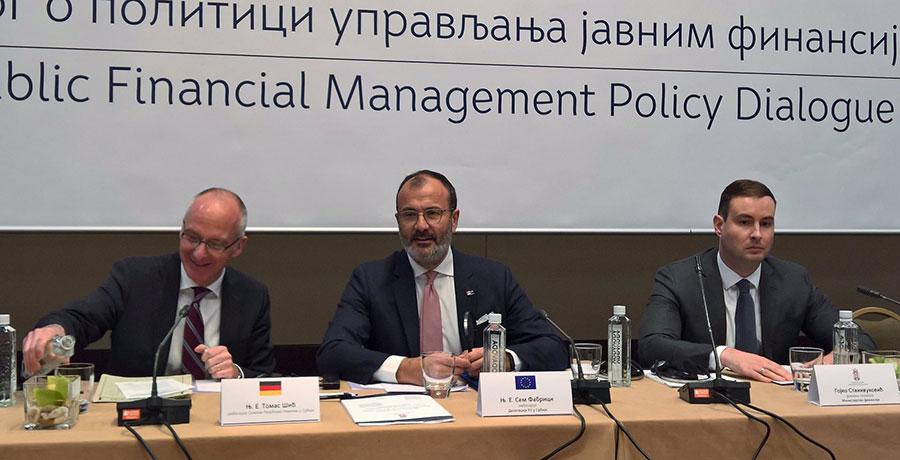The Head of the Delegation of the European Union to Serbia, Ambassador Sem Fabrizi, took part in the third meeting of the Public Finance Management Policy Dialogue. He stressed the necessity for continuing the reform process as this is an important part of Serbia’s integration into the European Union.
The Ambassador highlighted that these reforms mean that Serbia has entered a different phase of thinking, where in order to implementing public policy, it becomes necessary to conduct a cost analysis and to secure a budget, and for this to be part of an effort to make public administration as open as possible.
“Of course, this process does not happen overnight, it is the sum result of a large number of complex elements. The Law on the Planning System of Serbia, adopted in April 2018, has become a form of umbrella insurance and has created a link between public policy and the budget process. The need to connect these two elements goes hand in hand with human resource management, competencies, structural processes and organizational elements of public administration. This is why the European Union has been involved since 2016 in the sector supporting public administration reform,” stated Ambassador Fabrizi.
For over 15 years, Serbia and Germany have been partners in the field of good financial management and I believe it deals with a very good partnership, explained the German Ambassador to Serbia Thomas Schieb.
“For example, our joint activities include the so-called ‘Citizens’ Guide to the Budget,’ which is available on the official website of the Ministry of Finance. All our joint efforts are directed towards Serbia’s integration into the EU, as well as helping Serbia achieve the goals set out in Agenda 2030. Germany will continue to support Serbian authorities in public finance reform programmes even after 2019,” remarked Ambassador Schieb. The German Agency for International Cooperation (GIZ) is part of the project titled “Public Finance Reform – Financing Agenda 2030”.
The Public Financial Management Reform Programme 2016-2020 started in November 2015, reminded the State Secretary at the Ministry of Finance Gojko Stanivukovic.
“The program monitors the budget process as a whole, with the aim of connecting the budget execution process in the best possible way to various government policies. The aim of the reform is to achieve a sustainable budget, reduce public debt, strengthen financial management and control, improve audit control and parliamentary oversight, and further contribute towards transparency in public financial management,” stated Stanivukovic.




